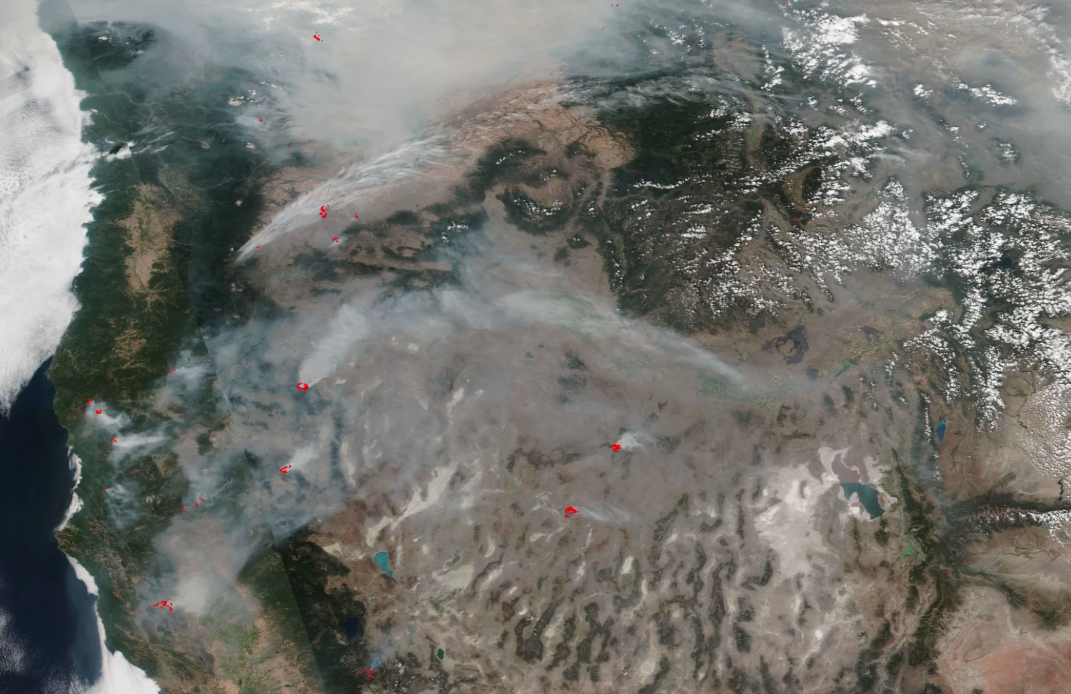Alana Miller
Policy Analyst
We face a critical choice right now: we can change our lifestyles to minimize global warming -- or we can let global warming claim our treasured traditions, like sitting around a campfire.
Policy Analyst
In Colorado and throughout much of the country, summer holidays mean watching fireworks, grilling on the BBQ and sitting around a campfire.
Or at least it used to. Climate change is shifting how we celebrate holidays and many of our experiences – often in ways we fail to recognize.
Earlier this summer, over July 4th weekend, I had plans to go camping with friends in the mountains outside of Aspen, CO. As we were deciding where to camp, wildfires raged across much of the state, including a sprawling fire that spanned an area bigger than Denver and became the third-largest fire in Colorado’s history. After a dry winter with near-record low snow melt resulting in drought throughout Colorado’s mountains, the forests were a tinderbox. Fire bans had been imposed throughout the state and the area around Aspen was under Stage II fire restrictions, which not only ban open fires, but also prohibit fireworks, grilling, smoking outside, operating a chainsaw, and discharging firearms.
In planning our weekend, we had the discussion – should we even go camping if we can’t have a campfire? What do we do when it gets dark and the temperature drops into the low 40s?
At some point during the discussion, I realized that we are at a profound moment in history – experiencing the impacts of climate change in real time. My friends and I, all in our 30s, had grown up with campfires and were having a hard time imagining camping without them. But we’re entering a new reality where campfires could conceivably be banned for much of the summer in forests across the West, where drought and high temperatures are side effects of a warming world.
We went camping and we didn’t make a fire. It was still beautiful and a friend brought solar-powered lanterns that we sat around for light – another sign of changing times.
Two days later, a wildfire erupted in Basalt, CO, about 15 miles away from Aspen, after two people fired tracer bullets at a shooting range, bullets known to be a fire hazard. Around 11 p.m. on July 4th, mandatory evacuations were issued and by the next morning the fire had doubled in size and destroyed three homes. The federal government stepped in to help fight the fire and it eventually burned more than 12,000 acres. Even now, nearly two months later, it is not entirely contained.
As Labor Day approaches, more than 100 large fires rage across the country. Smoke blankets the western United States, even reaching as far as New England.

Active fires and smoke in the United States on August 19, 2018, as seen from space.
The impacts of climate change extend far beyond the weather people experience on any given day – our entire lived experience is changing. This includes more trivial things, things we’ve always enjoyed but maybe haven taken for granted, like campfires and fireworks. We may be entering a point in history where the children of today have to come up with new ways to celebrate America’s favorite holidays.
Fire bans and other restrictions are a necessary response to a changing climate and dry conditions. But we face a critical choice right now: we can change our lifestyles to reduce our consumption of fossil fuels and minimize global warming (and in doing so, reap the positive benefits of cleaner air and safer communities), or we can continue being forced to alter our lifestyles in response to the climate chaos around us – letting global warming claim not only our communities but also our treasured traditions, like sitting around a campfire.
—–
Photo credits: campfire – NPS Photo / Neal Herbert; space – NASA/ESDIS.
Policy Analyst
